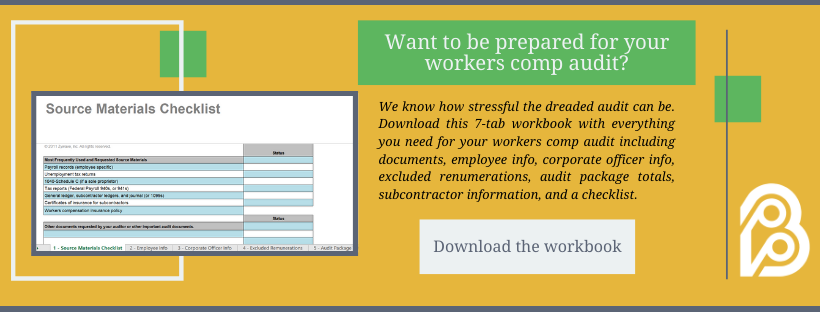What is a Workers’ Compensation Anniversary Rating Date (ARD)?
Not much can leave you questioning your own intelligence more than reviewing your workers’ comp policy.
But not to worry, we promise you aren’t stupid. It’s just that workers’ comp is way more confusing than it has to be.
Exhibit A: Anniversary rating dates (ADRs). What do they mean? How do they affect a policy? And how are they different from policy effective dates?
Well you’re in luck. Because in the last century in business we’ve been able to learn everything you might want to know about workers’ comp … we think.
But we are sure that we know a lot about anniversary rating dates. So in this article we’ll teach you all about ADRs and how they affect your workers’ comp policy.
Table of contents:
- What is the anniversary rating date or ARD?
- Why isn’t there an anniversary rating date on my MA policy?
- Why is my anniversary rating date different from my policy effective date?
- What does the anniversary rating date mean for my premium?
What is the anniversary rating date?
As defined in the Massachusetts Workers’ Compensation and Employers Liability Insurance Manual Rule 1-G - Anniversary Rating Date, “ARD is the effective month and day of the policy in effect and each annual anniversary thereafter unless a different date has been established by the MA Bureau or another licensed rating Organization”.
In other words, it is the date you got your first workers’ compensation policy. This date, which is exclusive to workers’ comp policies, is used for any application of changes in rules, classifications, or rates.
If the state of MA makes any changes to workers’ compensation, your ARD is the date those changes will go into effect for you.
Why isn’t there an anniversary rating date on my MA policy?
In a way, the anniversary rating date is becoming a thing of the past. Over the past several years, many states have actually eliminated the use of ARDs. Because the ARDs only apply to workers’ comp, professionals in the insurance industry complained that the dates created confusion and inconsistency compared to all the other policies they handled.
So in 2017, MA also eliminated the ARD from workers’ comp policies.
So if you used to have one but don’t anymore, not to worry! Most MA businesses will not have an anniversary rating date on their workers’ comp policy.
In fact, there is only one instance when you will have one: If you operate in more than one state and one of those other states still uses ARDs.
Why is my anniversary rating date different from my policy effective date?
The thing about an anniversary rating date is that it is the anniversary of your FIRST policy. It doesn’t change even if you get a new policy on a different date.
In those situations, the state uses an anniversary rating date endorsement to indicate the ARD is different from the policy effective date.
So if your anniversary date is January 1 and you canceled and rewrote your policy on June 1, your anniversary date is still January 1 even though your policy renews in June.
This means if the workers compensation state board files a rate change in August, for example, normally that rate change wouldn’t happen until your policy is renewed, but because you changed your policy dates, now when January comes, the new rates will apply.
It’s not really a huge problem, but it can be inconvenient or confusing for some people.
What does the anniversary rating date mean for my premium?
It’s no secret that workers’ comp isn’t cheap, so you may be wondering how having an anniversary rating date may affect your cost.
The answer? It doesn’t really affect it all that much.
Depending on when your anniversary date is, and when rate changes are issued, having an ARD could mean you are paying a little more or less than if you only had a policy date.
Let’s go back to the example above: Say you have an ARD of January 1 and a policy effective date of June 1. If the state raises rates in December, you will have to start paying the next month in January (even though you might expect or wish it would start June 1). If the state increases rates in February you won’t have to start paying the higher price all the way until January.
However, this really doesn’t mean much since the same situations apply to those who only have a policy effective date. If a rate increase happens shortly after your policy effective date, you won’t have to pay the higher rates for a while; if the rates increase right before your policy effective date, you’ll have to start paying sooner.
Because you can’t predict which months the state will make changes, it’s basically just luck whether you will be paying sooner or later.
So no, an ARD doesn’t really affect your premium. It can just be a little confusing or irritating if it falls at an inconvenient time compared to your policy effective date.
Let your workers’ compensation insurance agent manage the complex details
Basically, anniversary rating dates don’t mean much and shouldn’t affect your policy too much.
But it doesn’t mean they’re not confusing. That’s why you should have an experienced workers’ comp insurance agent to help you navigate your ARD, as well as all the other confusing aspects of your workers’ comp policy.
To learn more about what you deserve in a workers’ comp insurance agent, check out this article: 7 Things your Workers’ Compensation Insurance Agent Should be Doing for You.


.jpg)
